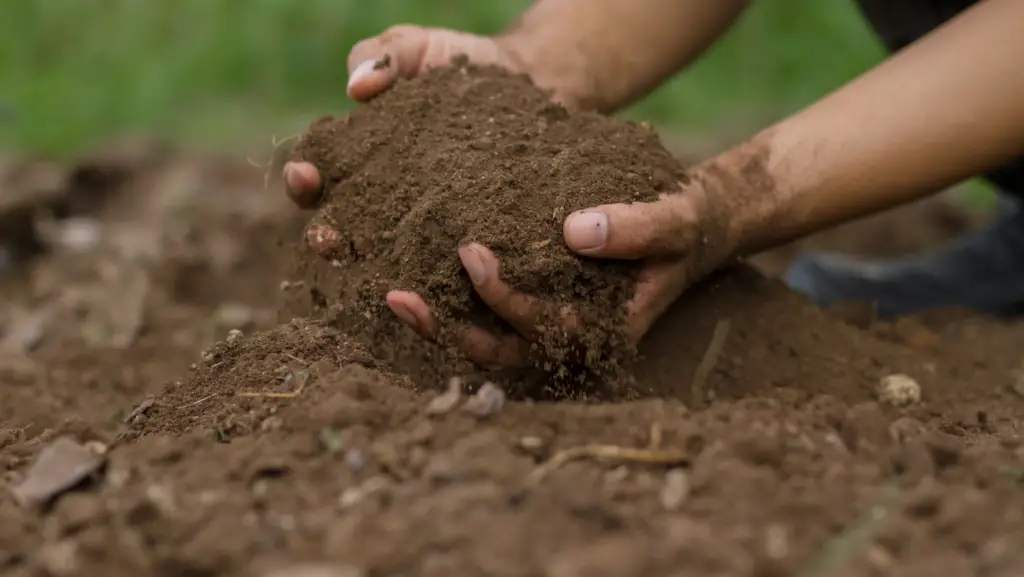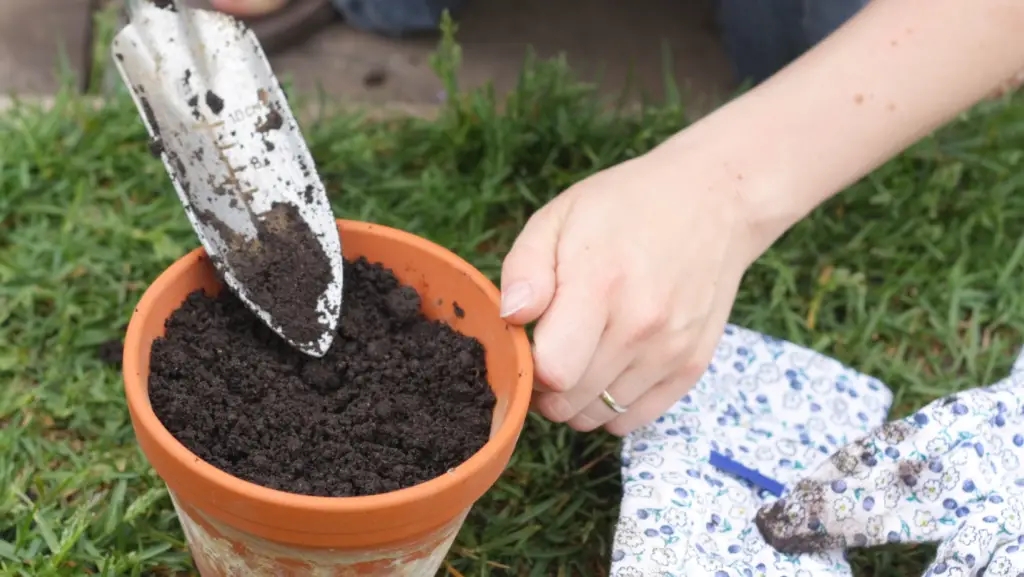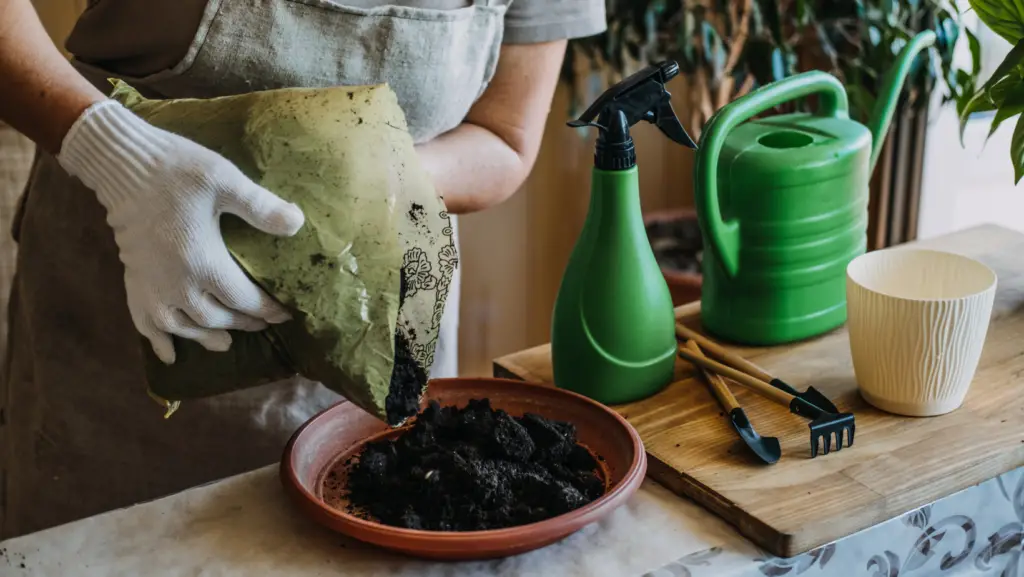
First, it is not recommended. Garden soil can pose a risk to your potted plants due to its density and poor drainage.
Root rot and other issues can wreak havoc on your plants, which is why potting mix is often the preferred choice. But, as with all things gardening, it’s not that simple. There are a few factors you need to keep in mind when deciding whether or not to use garden soil in your pots.
So, let’s dig deeper and find out what those factors are!
If you choose not to use the soil of your garden, check at the end of the article for the best soil alternatives for your potted plants.
Why Garden Soil May Not Be Ideal for Pots
As a gardener, I am all too familiar with the irresistible urge to use garden soil in pots. After all, the soil is just there, tempting us with its easy availability. However, succumbing to this temptation can lead to a plethora of issues that can leave your plants struggling to survive. Let’s explore some of the reasons why garden soil may not be the ideal choice for your precious potted plants.
- Moisture Levels: garden soil can pose a significant challenge when it comes to maintaining the correct soil moisture levels. Garden soil, by design, is meant to retain moisture in the ground, but not necessarily in containers. When used in pots, it can result in root rot, which is detrimental to plant growth and survival.
- Oxygen Availability: root cells require adequate oxygen to survive, but the use of garden soil in containers can reduce the air pockets available to plant roots, leading to suffocation and stunted growth. This phenomenon is often compounded by the dense nature of garden soil, which can make it challenging for plant roots to access the much-needed oxygen.
- Nutrient Imbalance: garden soil may not contain the right balance of nutrients that potted plants require, which can be detrimental to their growth and development. Additionally, when used in pots, garden soil can become compacted, further limiting the growth potential of plant roots and making it harder for them to access the nutrients they need.
The use of garden soil in pots can be a risky proposition, which may not provide the best conditions for your plants to thrive. A wiser choice would be to use a high-quality potting mix that is specifically formulated for container gardening (see my favorite alternatives in the last part of this post).
Factors to Consider When Using Garden Soil in Pots

Soil Composition
One of the biggest issues is the composition of your garden soil itself. You see, garden soil is often much denser and heavier than potting soil, which can make it challenging for plants to grow properly in containers.
Before you go ahead and use garden soil in pots, it’s critical to test the soil to determine its composition. You can test a sample of the soil with a special kit to learn more about pH levels, nutrient content, and other factors that may impact your plants’ growth.
Drainage
Another critical factor to consider when using garden soil in pots is drainage. Garden soil may not drain as well as potting soil, which can lead to waterlogged soil and root rot. To help improve drainage, you can add materials like perlite, vermiculite, or sand to the soil. Placing a layer of gravel or rocks at the bottom of the pot can also help excess water drain away from the roots.
Nutrient Content
The nutrient content is another critical consideration when using garden soil in pots. Garden soil may contain different levels of nutrients than potting soil, and too much of certain nutrients like nitrogen can lead to over-fertilization and damage to your plants. To determine the nutrient content of your garden soil, it’s important to test it beforehand. You can then adjust the nutrient levels as needed by adding fertilizer or other amendments.
Alternatives to Garden Soil for Pots

Now, we understood why using garden soil in pots is not always the best option. Don’t worry, because there are plenty of alternatives out there that can give your plants the boost they need. Here are some options to consider:
Potting Mixes
These specially formulated mixes are designed to provide optimal drainage and aeration, which are essential for healthy plant growth. They can be made from a variety of materials like peat moss, perlite, vermiculite, and coconut coir. They come in different formulations for different types of plants and are available at most garden centers.
Compost
Rich in nutrients and organic matter, compost is a great alternative to garden soil for pots. But don’t just use it straight up – mix it with other materials to create a well-draining potting mix. Straight compost can lead to compacted soil and poor drainage, which can harm your plants.
Coir
A sustainable alternative to peat moss, coir is made from coconut husks and has excellent water retention and aeration properties. It’s also pH neutral, so it won’t affect the acidity or alkalinity of your soil. Coir comes in compressed blocks that can be rehydrated and mixed with other materials to create a potting mix.
Using these alternatives to garden soil in pots can give your plants the organic material they need. Experiment with different materials and mixes to find the perfect combination for your plants. Your plants will thank you for it!
Conclusion
It is crucial to prioritize the health of our plants when deciding what to use in our pots. While garden soil may contain nutrients and organic matter, it may also harbor weed seeds, pests, and other unwanted materials that can harm our plants. Investing in quality potting mix can save us time, money, and frustration in the long run by providing a healthy growing environment for our plants.
I highly recommend using potting mix instead of garden soil for potted plants. By doing so, we can provide the ideal growing environment that promotes healthy plant growth and prevents root rot. Let’s prioritize the well-being of our plants and invest in quality potting mix for our container gardening needs.

Hi!
I am the guy behind Theyardable.com. I grew up on a homestead and I am here to share the knowledge I have and things I learn while living in the countryside.
